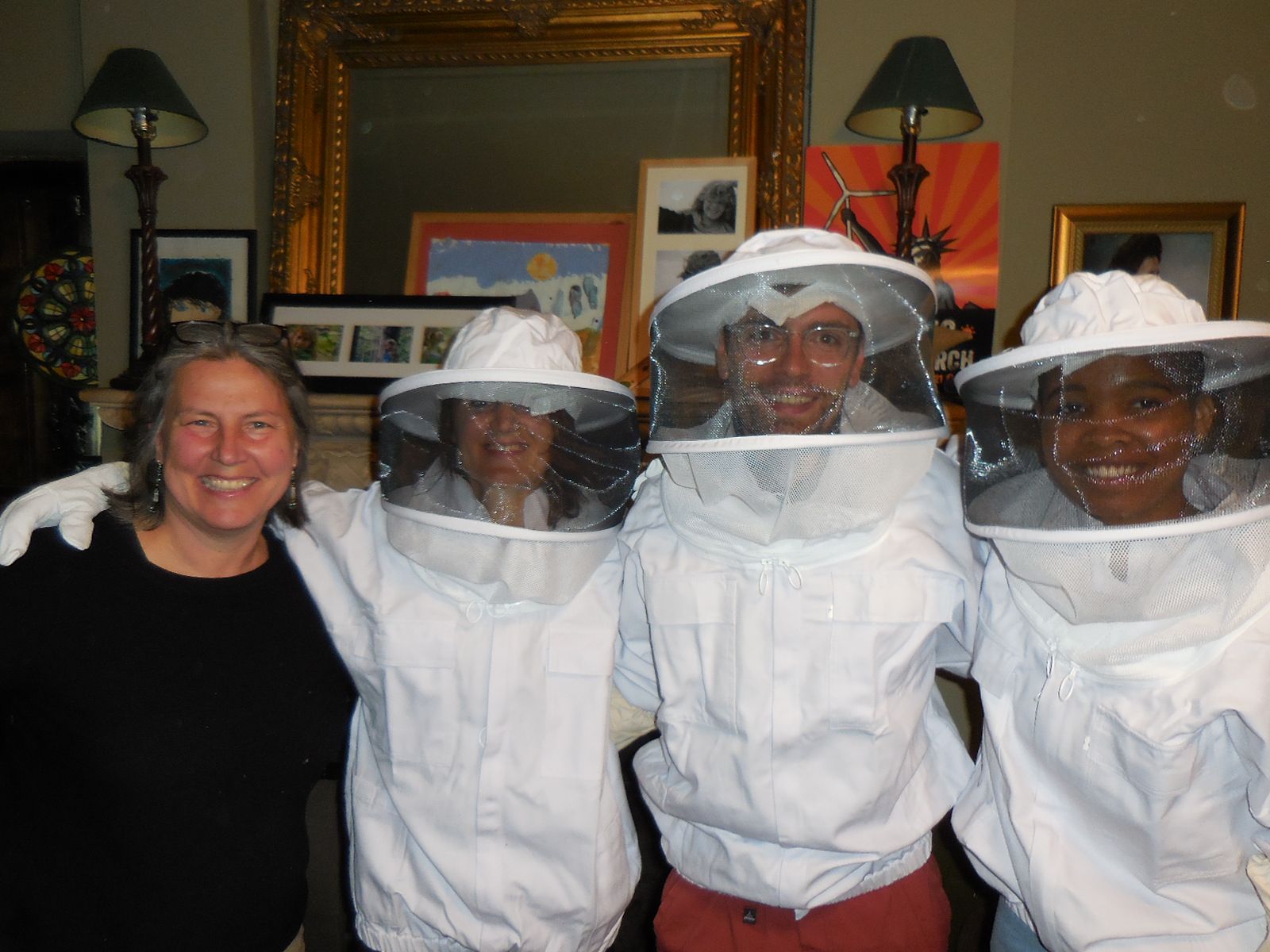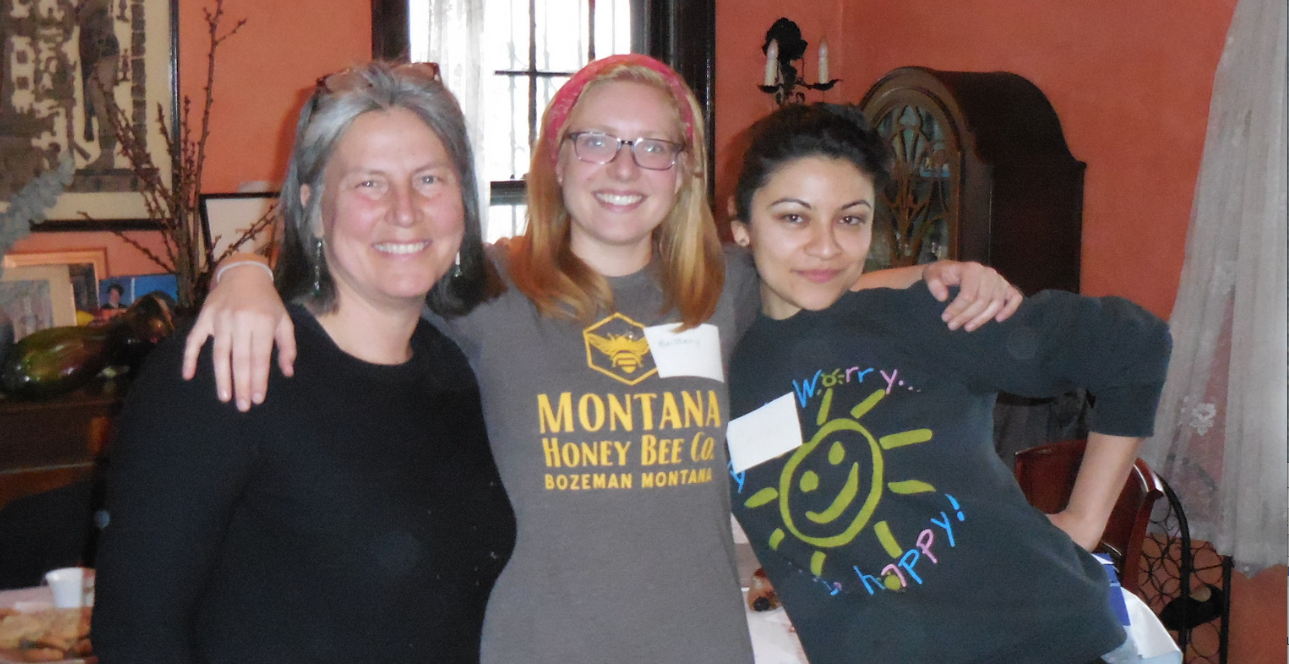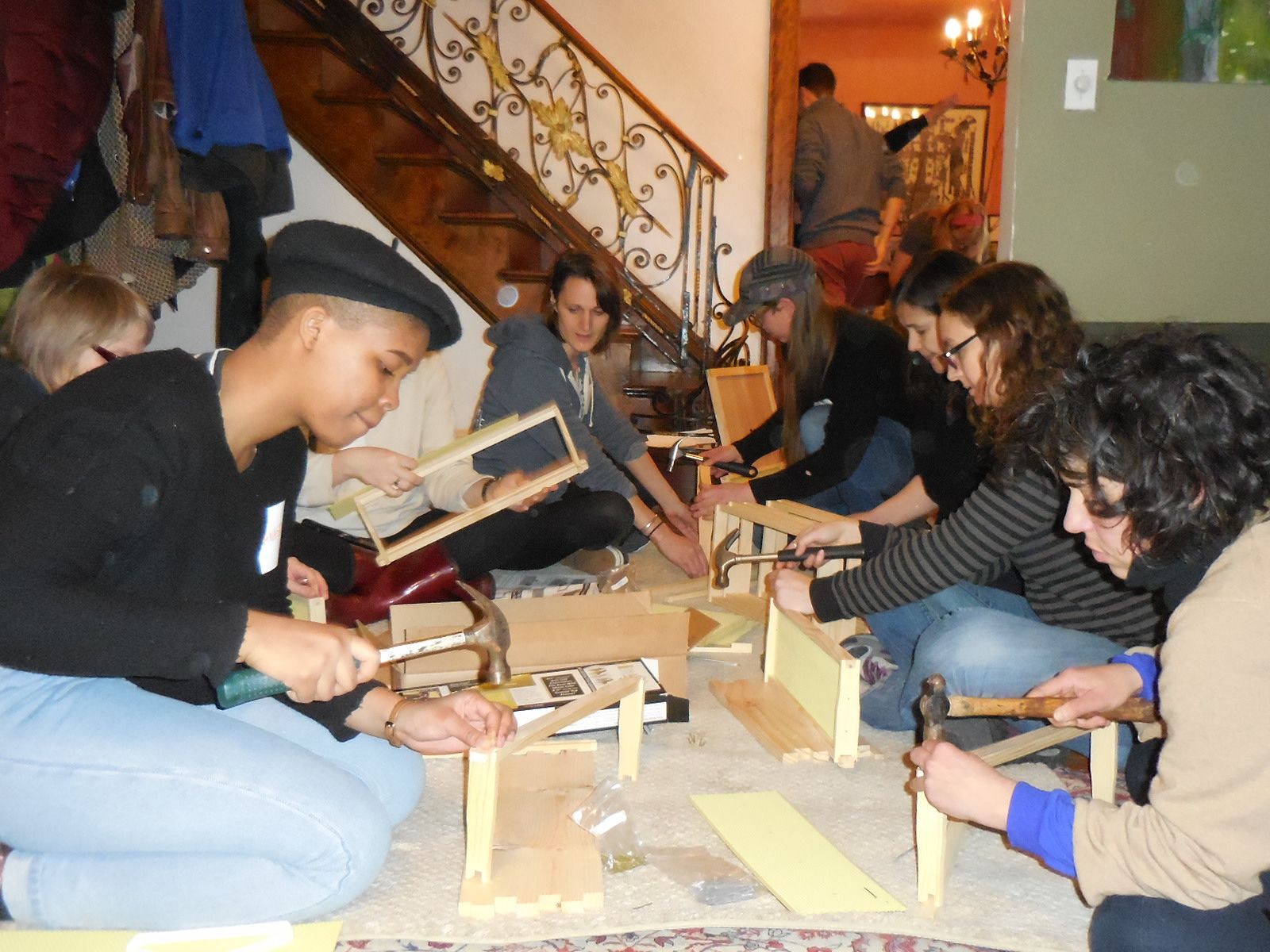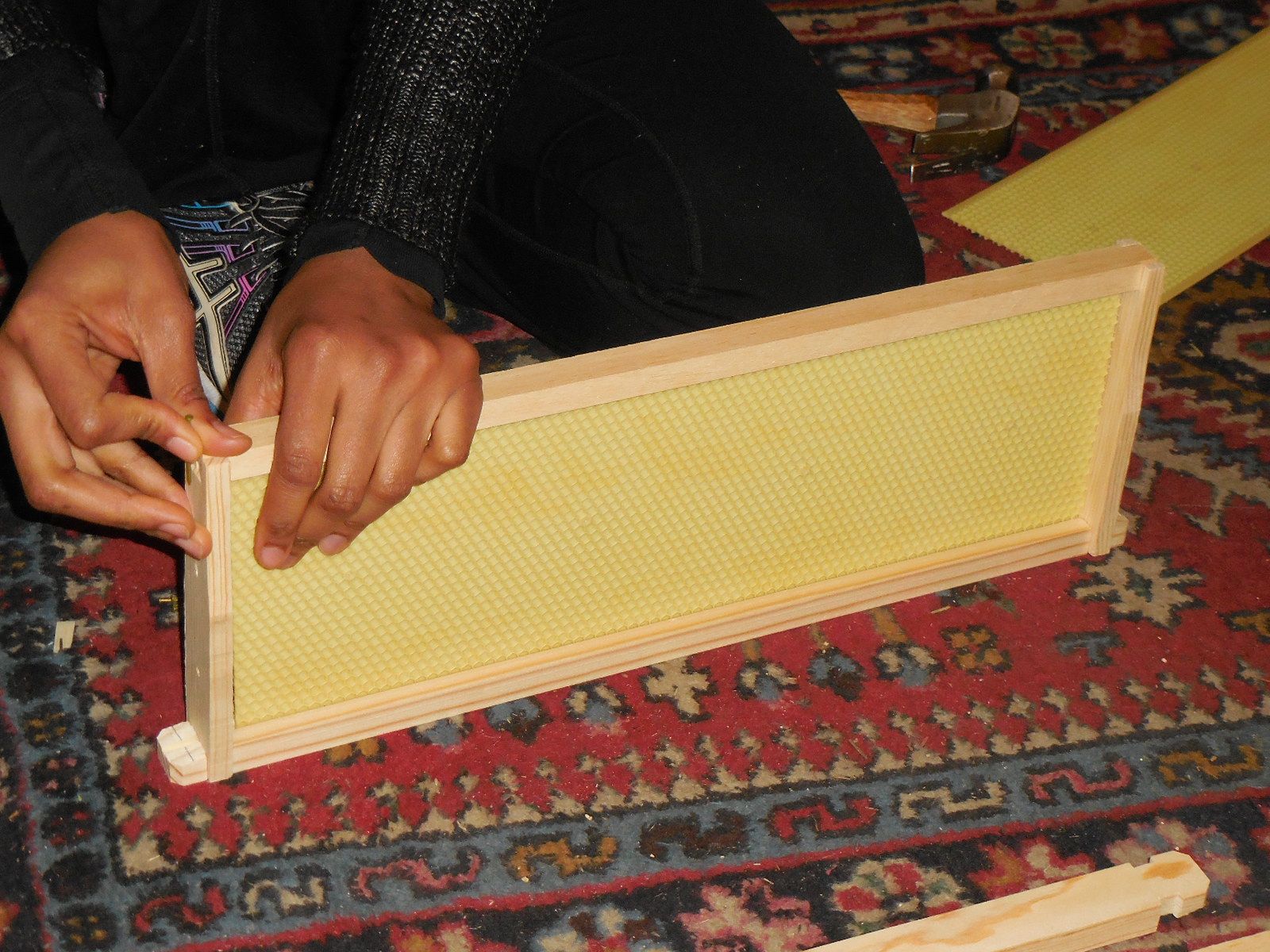Neighbors Use Their Green Thumbs To Save Honey Bees


The explosive growth in non-commercial beekeeping has generated excitement throughout New York City, especially since beekeeping became legal here in 2010.
But it’s a challenge to find trained beekeepers and appropriate places to locate hives. These are the kinds of challenges that Flatbush’s Q Gardens is ready to tackle.
Why keep bees?
Unfortunately, bees are dying around the globe — which is a problem that hits home for more than just honey lovers.
Pollinators are needed to grow most of the food we eat. All gardens, trees, and flowers need pollination. Bees are not the only pollinators, but honeybees are compact, require little maintenance, and produce enough honey to feed themselves and to share with humans.
One reason bees are dying off is that insecticides, particularly a class called Neonicotinoids, seem to have a devastating effect on bees’ ability to survive. There have also been issues with invasive parasites and a lack of diversity in both the bees being bred and their diets.
But non-commercial beekeeping helps support healthy bee populations throughout the country, and neighbors are taking action.

The team at Q Gardens, a community garden project run by neighbors, negotiated approval to locate a set of hives on the rooftop of a building adjacent to the garden, which is located behind the MTA station at Church Avenue and East 18th Street.
After getting the location squared away, Anne Schoeneborn, one of Q Gardens’ founders, began looking for an experienced local beekeeper to train a set of Q Gardens bee apprentices. Eva Lewandowski volunteered as an amateur beekeeper and brought in one of her instructors from Brooklyn Grange, Brittany Wienke, to serve as lead teacher. Brittany works for the Rain Forest Alliance and as a consultant who maintains beehives throughout the city.
“We were so fortunate to have found a landlord willing to let us run a beekeeping project from their rooftop, and to find two beekeepers so willing to share their knowledge,” says Anne. “When we first started fantasizing about getting bees, we had no idea how much local interest there would be!”
The garden’s beekeeping project is being funded by a $1200 grant that Q Gardens received from the Citizens Committee for New York City. The grant covers the equipment needed to build two hives, six bee suits, and a portion of the stipend Q Gardens will be paying the lead teacher of its first cohort of 12 apprentices. The group will meet monthly for bee classes and work collaboratively to maintain the hives every couple of weeks through November. Ultimately, the group will work together to harvest the excess honey!

The first class and hive build was scheduled to be outside on Saturday, March 18, but it was just too cold. So the class took over a living room in the neighborhood, the walls ringing with enthusiastic hammering. They were also joined by Kensington neighbor and bee pro, Carolina Zuniga-Asia of the Governors Island “Island Bee Project.”
Saturday was a day of learning and building. It’s all preparation for now, as the bees don’t arrive until mid-April.

Q Gardens originally planned for six bee apprentices and ended up with 12. “I cannot express how excited I am to see so many people engaging like this,” said Brittany. Q Gardens won’t be accepting any more apprentices this year, but as Anne explains, “We hope to keep the project going with a new cohort of apprentices in 2018. In the meantime, we’ll be documenting our progress on
This year’s apprenticeship program is full, but they hope to grow the project and accept a new cohort of apprentices in 2018. In the meantime, follow their progress on the garden’s website to learn how to start your own hives.
If you are interested in exploring beekeeping, Brittany is teaching Beekeeping 101 at the Brooklyn Botanical Garden on June 10. Also read more about Carolina Zuniga-Asia’s work on Governors Island here.




